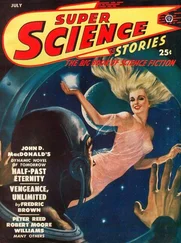Rufe Ventano was the guy who smartened me up. During the three years I worked for him, making book, he taught me how to dress and act. He taught me the right line of chatter and the proper fork to use. The week he was dying in bed of pneumonia, I was picked up on a breaking and entering, and the court gave me a choice of state prison or the U.S. Army. I enlisted the day they buried Rufe.
After Basic I had another long training session at Benning for the Airborne. I found out I was not crazy wild about jumping out of airplanes and wangled a transfer to the MPs. I took their training and got sent to Germany. After a month of watching the clumsy crooks making big dough, I moved in. During the seven months I was AWOL, I made two hundred thousand dollars. I had it in hundred-dollar bills. When they closed in, I buried the fat stacks behind a rock in the subcellar we used as a headquarters.
As I drove toward Bruerton, I realized that if I could carry off the job they had given me, I could ask for a month off. The dough I would get, if properly placed, would get me legitimately to Germany. I wanted to dig behind that rock.
With the two hundred thousand, I could buy myself a little talent among the syndicate personnel, enough to move Chowder out of my way and take over his job.
So it all depended on how I worked it out with James Fosting, Chief of Police of Bruerton.
I left the car in a storage garage and took a cab to the hotel. I signed in as Thomas Quinn, giving a Chicago address.
My room with bath in the Stanley Hotel in Bruerton was that size where you can’t open the room door and the bureau drawer at the same time. The bed was narrow and hard. But it was a respectable hotel. That was important.
With the room door locked, I sat on the bed and went over, for the twentieth time, a few of the tentative plans I had made on the road. The day was fairly cool for September, so, after a shower, I changed to a tweed coat and gabardine slacks.
I got some of my shopping done that first day. I bought a used portable typewriter, a ream of paper and a briefcase. Then I had the room clerk get on the ball and get a suitable table for my room.
The other little item was more important. I had to be careful about it. After breakfast the second day, I walked around, heading toward the shabbiest part of the business district, until at last I found a print shop that looked next door to bankruptcy.
A bell jangled when I went in, and an old guy in a green eyeshade came out peering nervously through the gloom.
Even though I explained carefully that it was a joke I was playing on a friend, he didn’t want to cooperate until I let him see the corner of the twenty-dollar bill. I waited while he ran off the letterhead I wanted. It looked okay, and I paid him the twenty for five copies on his best-quality bond paper.
The letterhead was that of one of the top-flight publishing houses.
Back in the room, I wrote a rough draft of the letter, and then carefully typed it, I addressed it to my fake name, Mr. Thomas Quinn, at the address I had given on the register card when I checked in.
Dear Tom,
Bill and I are really enthusiastic about the job you’ve done this time. There certainly is a need right now for this sort of book.
We would like to go ahead with it as it stands, but Bill says it could be longer than the present 70,000 words.
We talked it over and have decided that, along with the other men, you should include about twenty thousand words on a man named James Fosting who has been doing an outstanding job of cleaning up Bruerton, New York. He is Chief of Police there.
Make it the same sort of intimate biography technique that you used on the others. Find out how he thinks, what he eats, where he goes for amusement — all that in addition to the main job of finding out the reason for his success.
You can use this letter with him, if it will help. By the way, how would you feel about changing the title to “Men Who Make Our Cities”? Sound okay to you?
A check for your advance will go out sometime next week.
Sincerely,
Al Justin
In composing the letter, I was aided by the three years of education I received while locked up. If I made Fosting suspicious in any way, he would check back with the publishing house. I had to carry off the act, and do it well.
My next job was to go to the public library, read some of the articles in municipal journals and make a list of a few men who were written up with loud praise. I was careful to select them from cities with which I was reasonably familiar.
From a drugstore phone booth, I called the number Chowder had given me for Sid Marion. When he came on the line I said, “Sid, just listen and don’t ask questions. I’ve come here to help out. You know who sent me. You met me at the annual meeting. Don’t blink an eye if you see me in funny company. I’ll call on you, if and when I need help.”
I hung up before he could answer. I had the feeling that the further I stayed from Sid Marion, the better I could operate. If he had been on his toes, he would have thrown some syndicate dough around in the Common Council to spike the police merit system before it ever got underway.
I expected that he would be surrounded with the usual group of amateur and semipro sharpies, ward heelers and buck-hungry hangers-on.
For guaranteeing him freedom from competition and a war chest to tide him over the rough times and legal talent to keep him out of the pokey — the syndicate stepped in to take half his net. A syndicate spy had, of course, been sent in to make certain that Sid wasn’t holding out.
The way the force was set up, the Deputy Chief had his office at Police Headquarters, and the Chief had an office over in City Hall, adjoining the office of the Commissioner of Public Safety.
I went in, sat on the bench in the outer office and spent some happy moments admiring the talent he had at the secretarial desk before I got the call to enter the sanctum.
James Fosting turned out to be a tall guy with a long leathery-looking face. About thirty-five, I guessed. He wore the local equivalent of a Brooks Brothers suit, and under the high forehead, the blue eyes had a harsh and knowing gleam.
I gave him my best-variety smile and handed him the letter. I didn’t sit down until he asked me to. There are cops who claim that they can tell a wrongo in one third of a second. Those cops have holes in their heads. No hick cop has ever made me on first look. You have to have presence. And a nice, open, honest smile.
I sat and watched him read the letter. His eyes flicked down it, then he started in again from the beginning and read it more slowly.
“Hmmmmm,” he said. “Very flattering, Mr. Quinn. I’m honored.”
“Can I assume that it’s okay with you, Chief?”
“With strings. One — I took over a very bad situation here, Mr. Quinn. Very bad. Straightening it out is still a fourteen-hour-a-day job. I can’t slight that job. You’ll have to get a lot of your information secondhand. Two — I want to read every word you write, and approve the final draft. One wrong sentence, and my political enemies might use it as an excuse to move me out of here.”
I knew he was normal, and I knew he had swallowed the hook. I didn’t even have to give the line a yank to set the hook.
Already he was thinking of himself in that book. City builder. Ha!
He had been crisp and businesslike, but now he had that old pleased gleam in his eye. He pushed a button on his desk.
The lush item came in briskly. “Miss Calder, this is Mr. Quinn.” I stood up, and we nodded at each other.
“Mr. Quinn is including a write-up of me in a book that has been accepted by a good publishing house. What shape is your work in?”
“I’m nearly caught up.”
Читать дальше
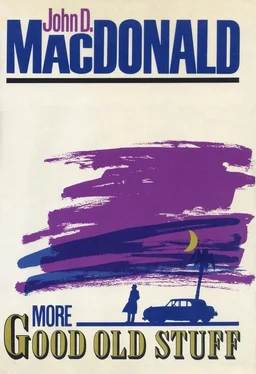
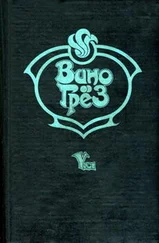
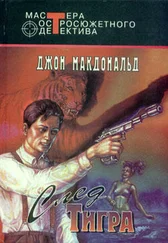
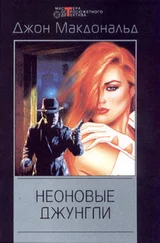
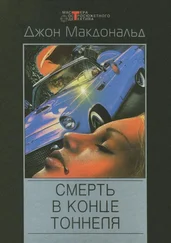
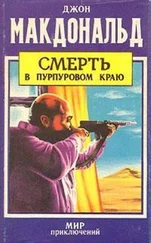



![Джон Макдональд - Wine of the Dreamers [= Planet of the Dreamers]](/books/430039/dzhon-makdonald-wine-of-the-dreamers-planet-of-thumb.webp)

